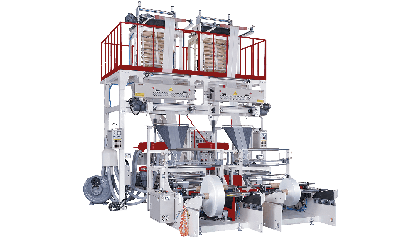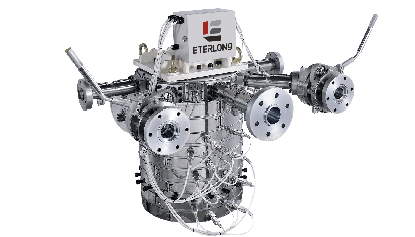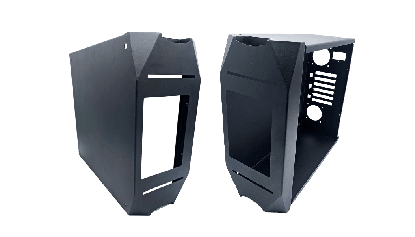Troubleshooting
Blown Film Extrusion Troubleshooting
Cause (s)
Possible Solution (s)
Unstable die head temperature
- Check the heater function is normal
- Check the thermocouple position is correct
Die head throughput fluctuations
- Adjust the die gap
- Regular cleaning of die head, screw and hilter
Non-uniform cooling air volume
- Check air ring for dirt buildup or breakage
- Adjust air ring position
- Check whether air pipe is damaged
The air flow in the factory is too fast
- Do not let outdoor air directly enter the factory
Extruder throughput instability
- Cool down the hopper throat to avoid plastic blocking
- Replace the strainer meshes of Filter to avoid blocking
- Matter of the formula
Cause (s)
Possible Solution (s)
Blow-up ratio
- Use a smaller die head to increase the blow-up ratio
Improper die design or scratches
- Clear die impurities
- Fix scratches on the die head
- Avoid seams by design
Material cracking
- Change the material
- Turn down heating temperature
Inappropriate raw material formula
- Select raw materials with suitable Melt Index (MI)
- Select compatible additives
Uneven gels mix
- Use screw with a greater L/D
- Adjust the melt temperature
- Use multi-layer strainer meshes for filter, or reduce the die gap, to improve back pressure
Cause (s)
Possible Solution (s)
Improper film roll storage
- Avoid piling up
- Store in a well-ventilated place
Winding tension is too high
- Adjust the winding tension
Nip roller pressure is too high
- Reduce nip roller pressure
Tubular film temperature is too high
- Increase cooling air volume of air ring
- Use cold air cooling
- Reduce die head temperature
- Equip take-up roller with waterway
Unsuitable material formula
- Add anti-phase adhesive or slippery agent
Cause (s)
Possible Solution (s)
Tubular film asymmetry or swing
- Adjust the air flow of air ring
- Avoid too fast air flow inside the factory
- Use a hash-shape frame to steady the film
Inappropriate nip roller
- Align nip roller and keep it horizontally
- Avoid nip roller damages
Improper collapsing frame
- Adjust collapsing frame angle
- Adjust collapsing frame length
- Reduce friction to collapsing frame
Uneven winding tension
- Adjust the winding angle
Die head scratches
- Refinishing die scratches
Cause (s)
Possible Solution (s)
Improper operating in material exchange
- Avoid overheating of the gels
- The new material should have a lower MI than the old material
- Clean the machine before exchanging the material
Melt temperature is too high or too low
- Adjust the melt temperature
- Check the heater function
Raw materials contain impurities
- Avoid dirt entering feed hopper
- Avoid using recycled materials
Uneven gels mix
- Increase back pressure
- Use screw with a greater L/D
- Avoid existence of dead corner at extruder or die head
Cause (s)
Possible Solution (s)
Melt temperature is too high or too low
- Adjust the melt temperature
Improper use of additives
- Reduce color masterbatch
- Reduce waste recycling rate
Insufficient melt mix
- Add more strainer meshes of filter or reduce the die gap to increase back pressure
- Use screw with a greater L/D
Non-smooth material feeding
- Clean die head and screw & barrel
- Replace the strainer meshes of filter to avoid blockage
- Cool down the hopper
- Remove raw materials impurities
Cooling line too low
- Raise the cooling line
Cause (s)
Possible Solution (s)
Inappropriate ink
- Choose the right ink
Improper use of additives
- Reduce the amount of additives
- Use the appropriate surface lubricant
Insufficient corona treatment
- Increase the treatment voltage or wattage
- Reduce the take-up speed
- Narrow the gap of the electrode
- Raise the electrode treatment temperature
Air humidity too high
- Reduce the air humidity






